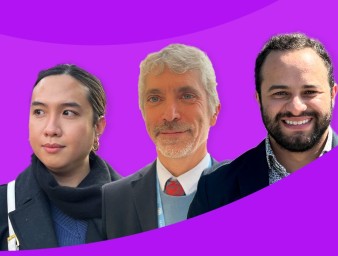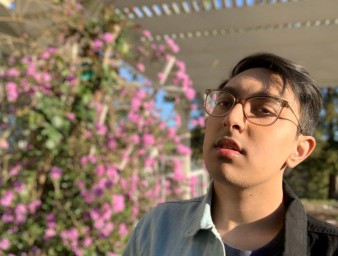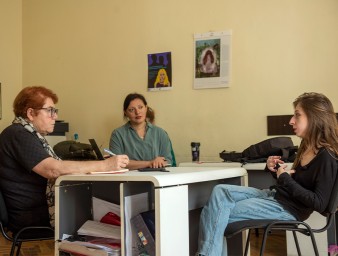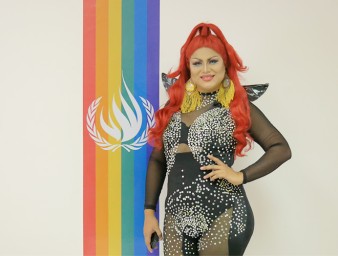Empowering transgender youth in Pakistan
08 October 2021
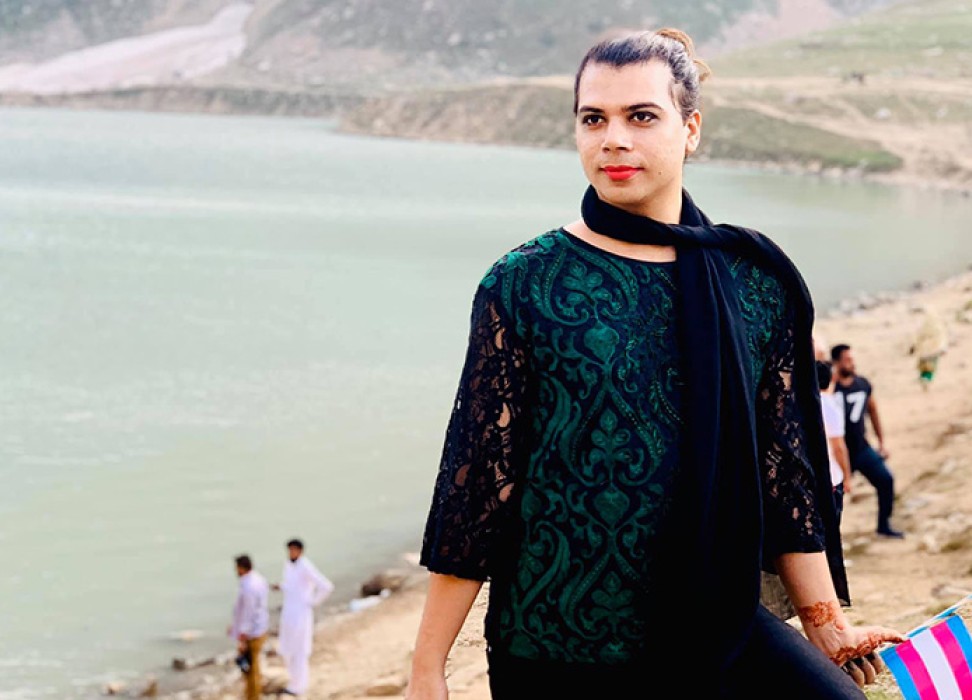
“I was 15 when I told my family about my gender identity,” said Saro Imran, a transgender youth advocate and social entrepreneur for the rights and empowerment of transgender people in Multan, Pakistan.
Imran, 28, felt a sense of relief when she came out to her family because she didn’t have to live her life in secret anymore.
For many young transgender people, the reaction isn’t as positive when they reveal their gender identity to their families, friends, and community, Imran added.
UN Human Rights has documented widespread discrimination and stigma against trans people in the health sector, schools, employment and housing, as well as in accessing bathrooms and lack of recognition of their gender identity and made recommendations to Governments on steps to take to better protect the rights of trans people.
Since 2013, Imran has been a transgender youth advocate for sexual and reproductive health and rights. She is working with several local and international organizations such as Rutgers Pakistan, AwazCDS-Pakistan, Family Planning 2030, Commonwealth Youth Network for Gender Equality, and International Youth Alliance for Family Planning.
Supporting the trans community
Imran knows firsthand what it is like to feel unsafe in public. In 2010, a crowd of people physically attacked her for being transgender. She was badly beaten and slowly recovered with the support from her peers, she said.
This type of violence and traumatization can deter young transgender people to be open in public about their identities, according to a recent report on youth protection.
She said that after the attack, she decided to be an advocate for those who are unable to stand up for themselves and be open about being transgender.
Imran said the accessibility of mental health services and peer support is crucial for transgender people because societal pressure and discrimination is an ongoing ordeal. This is echoed by the World Health Organization, that has documented substantial health disparities and barriers faced by trans people in accessing health services.
“They are going to go through a lot of ups and downs in their lives, especially those people who are not accepted by their families,” she said.
The Government of Pakistan took steps to make life safer and more inclusive by legally recognizing transgender people with the Transgender Persons (Protection of Rights) Act, a law that was ratified by Parliament in 2018 to legally provide equality to transgender people and to protect their rights.
“The new law gave a lot of courage and support for this movement and the movement itself is becoming stronger,” she said.
Since the Protection of Rights Act, Imran has seen more grassroots level organizations for transgender people and it has also provided more opportunities for them as well.
“There are a lot of success stories that I have seen, including transgender people who are working now in Government, in media, in the corporate sector, and as entrepreneurs,” she said. “And that is a good thing that needs to be showcased on an international level, rather than just showing the bad things.”
Even with the progressive Protection of Rights Act, transgender people, especially youth, continue to face many challenges in the civic space such as harassment, security, and lack of access to social and economic opportunities, Imran said.
While the support from the Government is vital for this marginalized community to feel safe, Imran said there still needs to be more support from families and civil society.
“The biggest hurdle is there is no family acceptance for transgender people in Pakistan,” she said. “They are abandoned by their families at a very early age.”
Some members of Imran’s family are still not on her side, but she said it’s a long journey toward acceptance.
“Diversity is beautiful, so accept the diversity and accept your diverse kids,” she said. “If you do not accept them, the world will not accept them, and they will suffer in their own life.”
8 October 2021
This story is part of Human Rights Champions – a recurring series featuring portraits of human rights defenders or organizations that stand up for human rights.
Disclaimer: The views, information and opinions expressed in this article are those of the persons featured in the story and do not necessarily reflect the official policy or position of the office of the UN High Commissioner for Human Rights.
